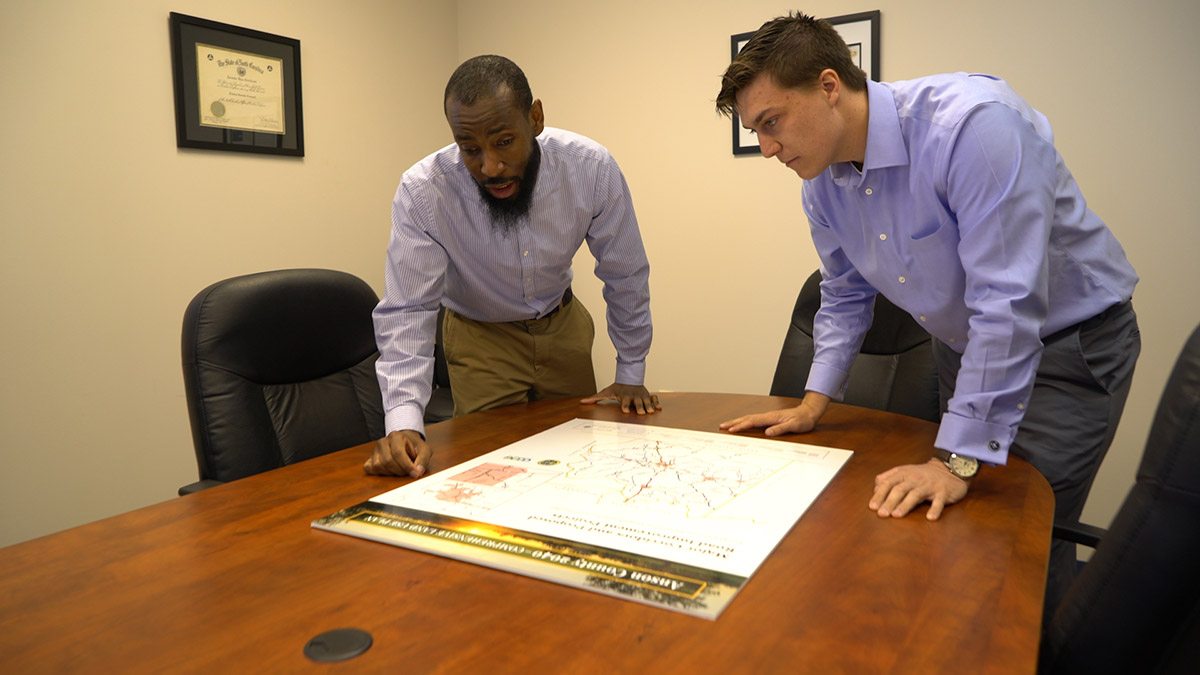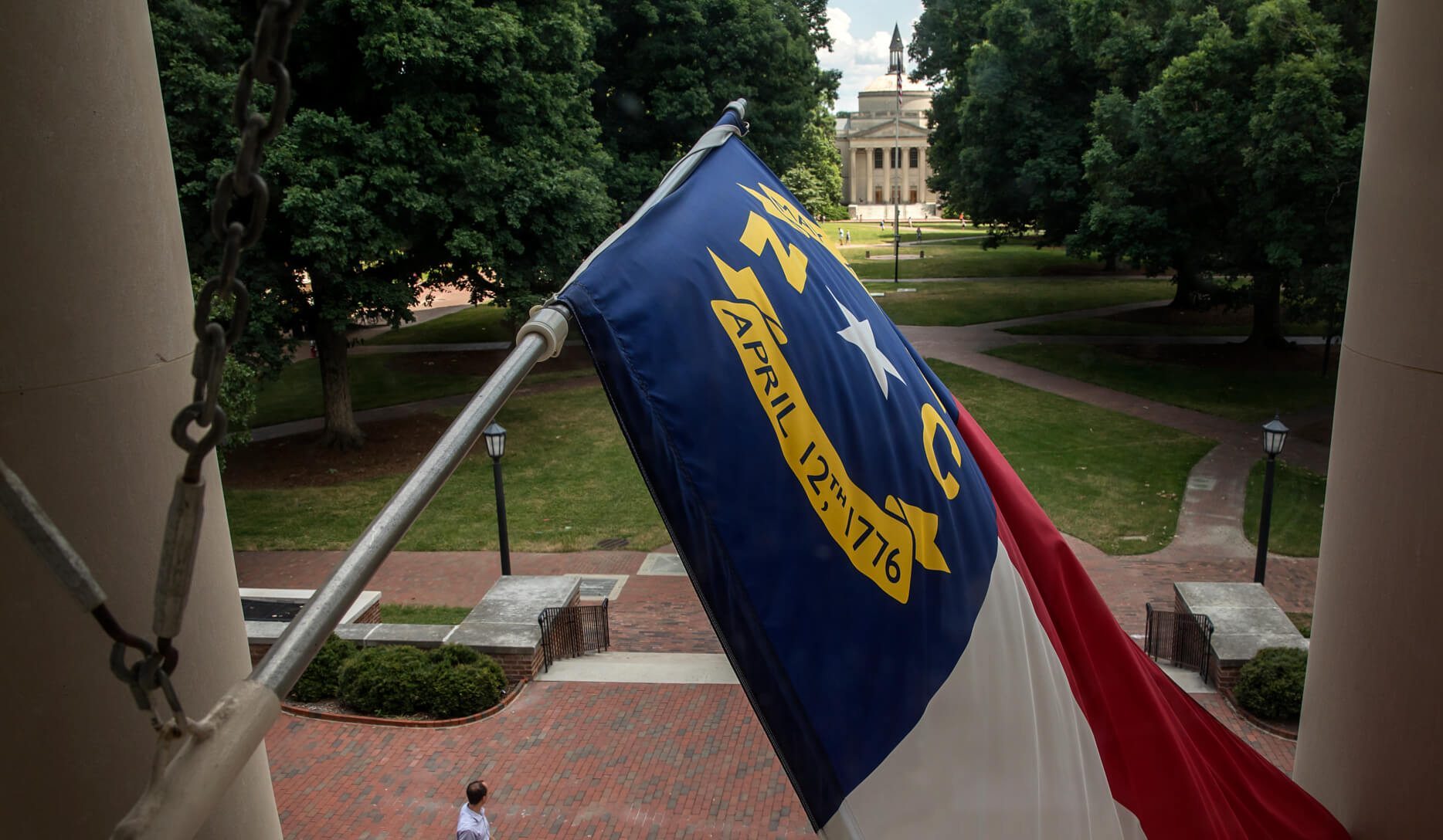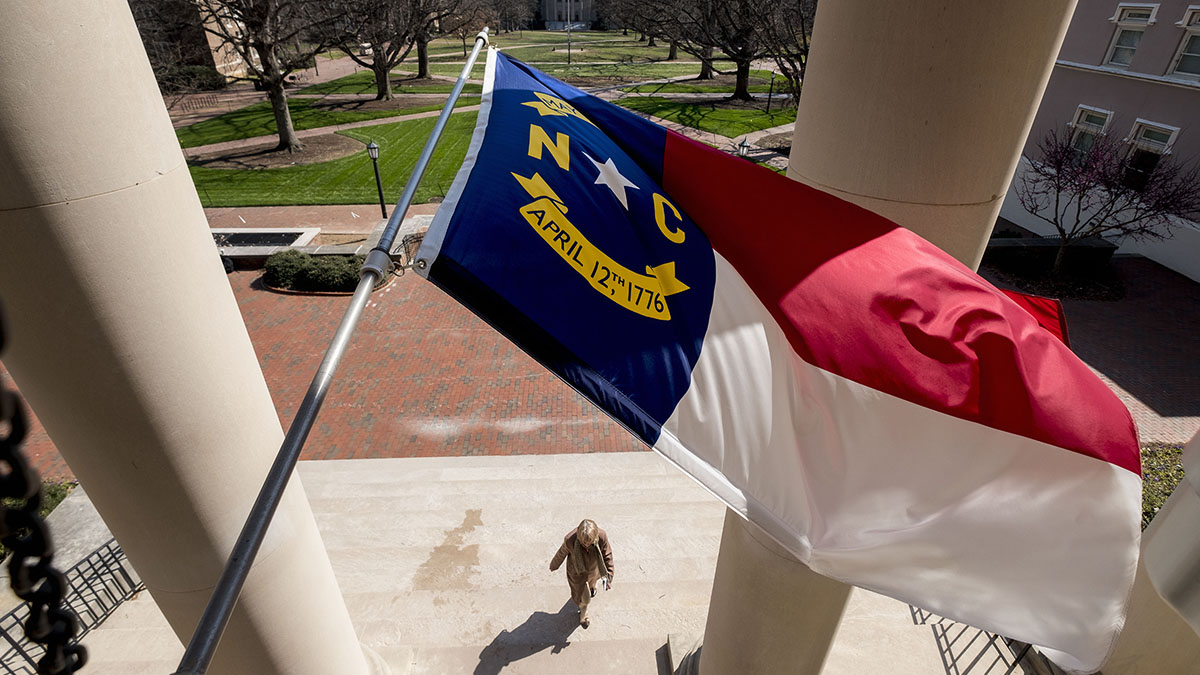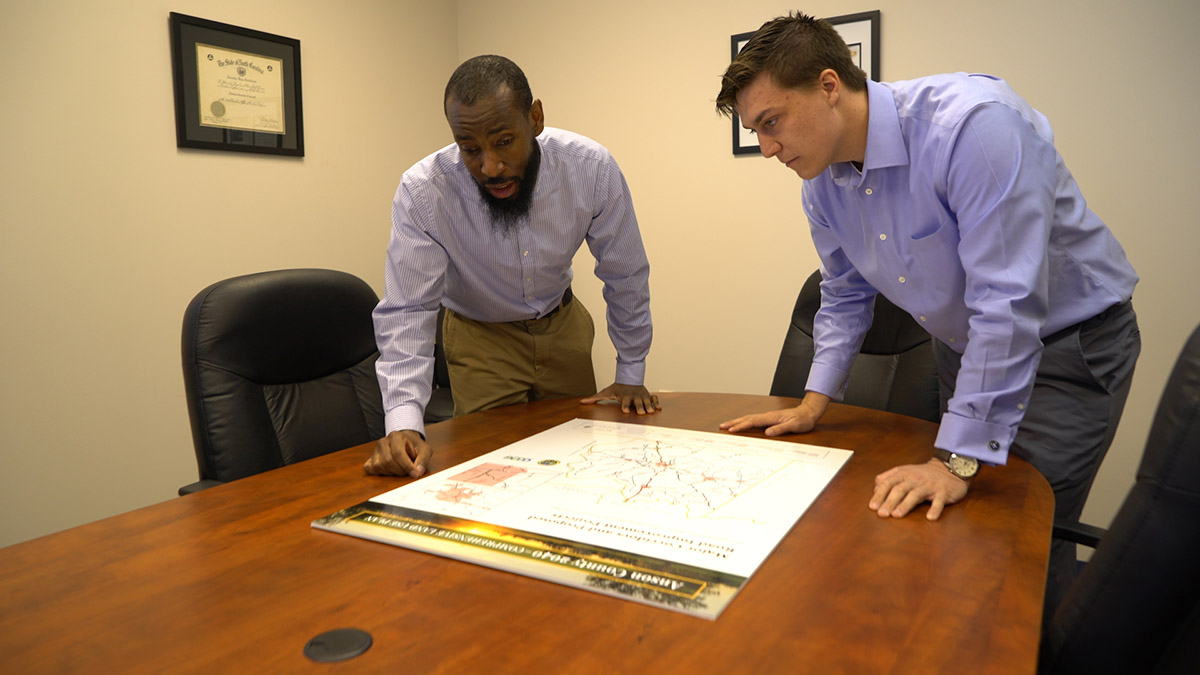Lead for North Carolina prepares our state’s future leaders
Operated by the UNC School of Government, the Lead for North Carolina program is training future leaders to address problems facing North Carolinians by placing young professionals in local government offices.

With most of North Carolina’s local government leaders nearing retirement, communities throughout the state are faced with a pressing issue: Who will be the new generation of public servants to support residents for decades to come?
Lead for North Carolina, a program at the UNC School of Government, is addressing that problem head-on by attracting some of the country’s top recent graduates to North Carolina to help strengthen communities through public service.
Following a training course in Chapel Hill, Lead for North Carolina trainees are assigned to fellowships with a local government office within the state.
The program is the first state affiliate of Lead for America, which Carolina alumnus Joe Nail founded in 2018. Since launching in 2019, the Lead For North Carolina has placed 50 fellows in public service roles throughout the state — largely in distressed counties.
“I am consistently inspired by these young people and their dedication to public service and our state,” said Dylan Russell, the executive director of the program. “I, like so many other young people, bought into this idea that success means leaving. But it should also mean returning, and Lead for North Carolina is making that an option for so many graduates across the state.”
Keep reading to learn more about Lead for North Carolina and how it’s helping communities throughout our state.
What is the goal of Lead for North Carolina?
Lead for North Carolina’s mission is to connect recent college graduates with high-impact fellowships in local governments, particularly in our state’s most overlooked communities. Seventy percent of our local government leaders are eligible to retire and this percentage is exacerbated in our state’s most distressed communities. The private sector pours millions of dollars into recruiting our nation’s top graduates, while the government hiring process can be circuitous and on average, takes graduates three to five months to land a public service position. Lead for North Carolina provides graduates with a clear pathway to start a career in public service.
Local government has what young people want: mission impact. Our graduates want careers in which they can make a difference, and our local governments are at the vanguard of problem-solving. From parks and recreation services to managing the pandemic response and recovery to addressing global climate change, local governments have become more adept at providing the vast array of services that have an impact on our daily lives. Local government is democracy’s original incubator. At a time of political paralysis, local leadership has proven more effective and efficient and more important than ever before.
But here’s the problem. Local government leadership — particularly in rural, small and economically distressed communities — is rapidly aging, often lacks representation from its diverse populations and is struggling to attract the next generation of talent necessary to address our state’s most significant challenges. Here in North Carolina, many government leaders are eligible to retire, but enrollment in the state’s public administration programs has stagnated. In North Carolina’s rural counties, local governments employ one of every three workers. We know that graduates aren’t moving back home. Our graduates either leave North Carolina or cluster in two to three cities across the state where an overwhelming majority of economic growth is already concentrated. Seventy percent of the country’s non-metro counties have experienced continuous population decline since 2010.
Who are Lead for North Carolina fellows, and how does the program prepare them to serve the state?
We recruit diverse and dynamic graduates from across the state who are passionate about public service and community development. We connect them with local governments who want increased organizational capacity. We train and support fellows. And we reimagine and reinvest in our local communities.
To date, we’ve placed over 50 students in local government fellowships across the state. Over 470 students and 90 local governments have applied to participate in our program. And 80% of our local government host sites are in the state’s most economically distressed communities located within Tier One counties. Our fellows bring diverse perspectives to government workforces. Forty-eight percent of our fellows are racially diverse, while 70% are female. Compared to nationally, 25% of local government leaders are women, and only 7% are people of color.
Prior to their service, we bring our fellows to the UNC School of Government, where they participate in a three-week initial training program. Our incredible faculty provide the students with a foundation in local government law, economic development, project management, grant writing and professional communications. Fellows then take a graduate-level course in community development throughout the fellowship to provide an academic framework to their service.
What are some of the issues that fellows have helped North Carolinians tackle?
To date, our fellows have secured over $14 million in grants to advance key community initiatives. They’ve worked on projects including coordinating FEMA recovery efforts after Hurricane Florence, managing ARP and CARES funding, ensuring public spaces and buildings were accessible and compliant with the Americans with Disabilities Act, creating citizens academies to ensure underrepresented residents were knowledgeable about city hall’s operations and so much more.
Some of our fellows moved on into full-time positions, like Dante Pittman, who is the city human relations director in Wilson, or Magnolia Long, who is now the community development director in Rutherfordton. In fact, in our first two cohorts, 50% of the fellows stayed on either doing full-time or part-time work. Sixty-five percent of our program’s alumni are now enrolled in public affairs programs across the state and all are deeply committed to public service in North Carolina.
How does Lead for North Carolina fit into the UNC School of Government’s mission?
When Albert Coates founded the Institute of Government in the early 1930s, he said every year the University was graduating thousands of students who could read a page of foreign text but couldn’t read their own municipal balance sheet. They were able to track Caesar and Cicero’s travels around Rome but couldn’t find their way around their own city hall. Not much has changed. That’s why we are so excited about this program. It’s the marriage of what our institutions need and what our young people want.
The UNC School of Government brings the institution of higher education to the town hall. As the nation’s largest university-based local government training center, we are uniquely prepared to train and support students with high-impact fellowships in local governments across the state.




